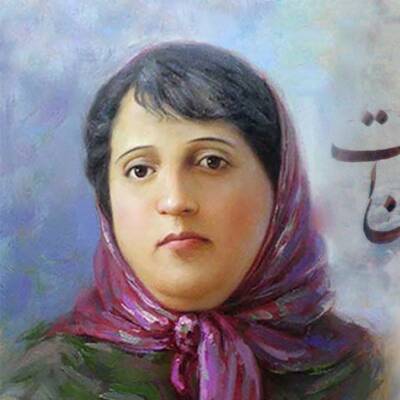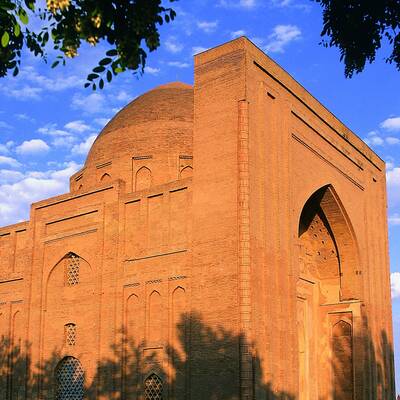
Abul-Qâsem Ferdowsi Tousi was born in 329 AH (319 SH), but there is no certainty about the exact date. Although Ferdowsi has not said anything about his birthplace, there is no doubt among researchers that he was born in the village of Paj or Paz, near the city of Tous, 20 km from Mashhad. Like any other city in Khorasan, Tous was occupied by Muslims during the reign of the third caliphate and it had a lot of ups and downs in its history. Having many disagreements, freedom-loving Iranians faced injustice from the Islamic government agents, who acted against the true Islam and they realized that they should rely on their language, literature, and culture in order to confront the humiliations and unfairness. So, the scholars and scientists in Tous could turn the city into one of the important Shia cities. Ferdowsi came into the world at such a time and place.
He belonged to a rich dehqans (a social class) family who had some hereditary lands. No detailed information about his childhood and adolescence or about his parents and wife is available. But there is no uncertainty and all scholars have regarded him as a Muslim and a Shiite. He became familiar with Sultan Mahmud of Ghazni when he was 65 or 66. Ferdowsi lost his heritance for composing the Iranian national epic and he decided to dedicate it to Sultan as he suffered from poverty. After his masterpiece was not praised by Sultan, Ferdowsi returned home and continue his life with hardship and distress.
The title of his epic, Shahnameh or The Book of Kings, is not mentioned in his poems. Most of scholars believe that Shahnameh was a common name for fictional and epic poems and proses. It is not clear that when Ferdowsi started or finished writing the Shahnameh. He said once: “I have suffered for thirty years to revive Persian culture with this Persian language”, and also he talked about thirty-five years of hard work: “I have tolerated such hardship for thirty-five years hoping for treasure”, and again he mentioned twenty-five years of pain: “I spent all the two decades and five years with this pain.” Linguistics and scholars considered Shahnameh as one of the five immortal epics in the world and one of the most important literary masterpieces.
Most of the researches said he died at the age of 81 in 410 AH. He was buried in a garden outside Tous. In 1313 SH, a magnificent mausoleum was built over his grave on the occasion of his 1000th birthday by the order of the government of that time.

